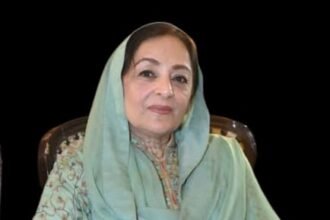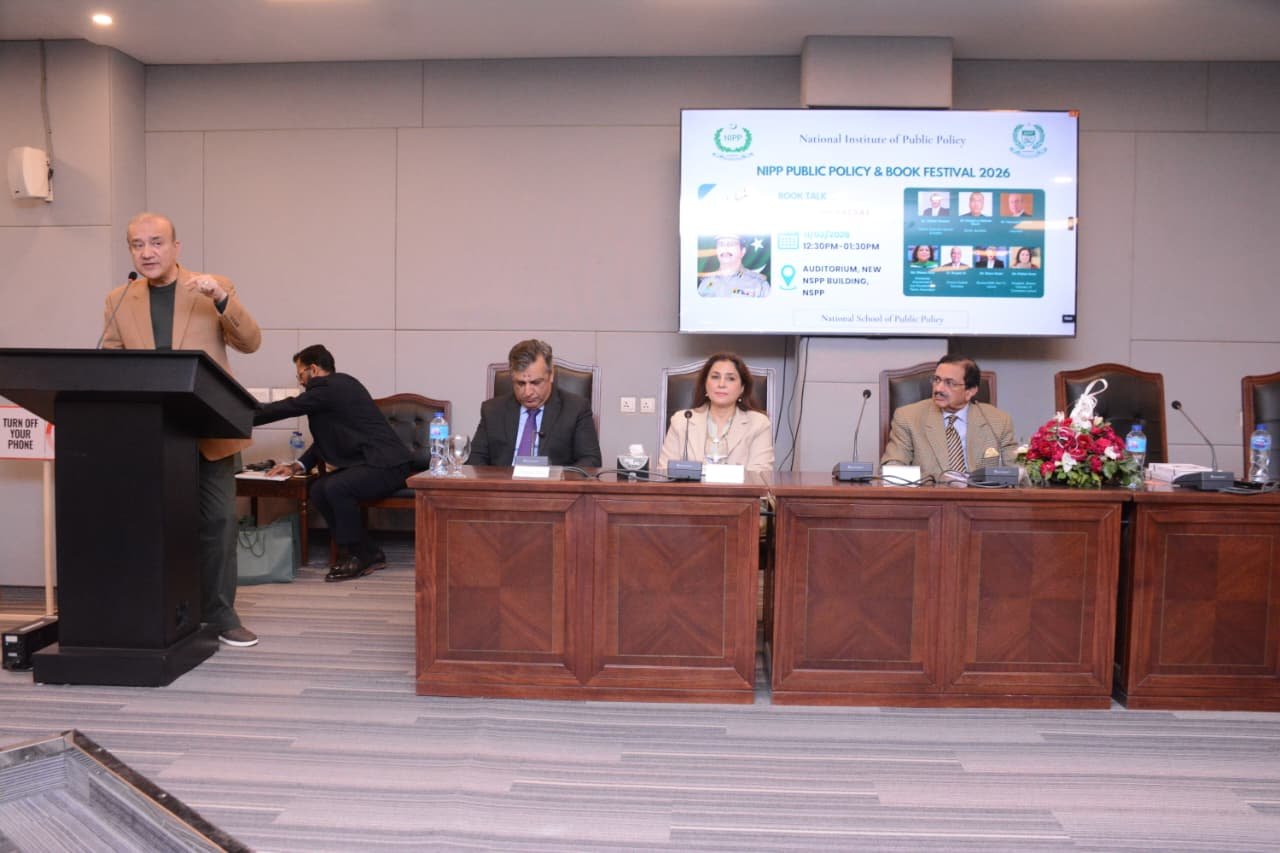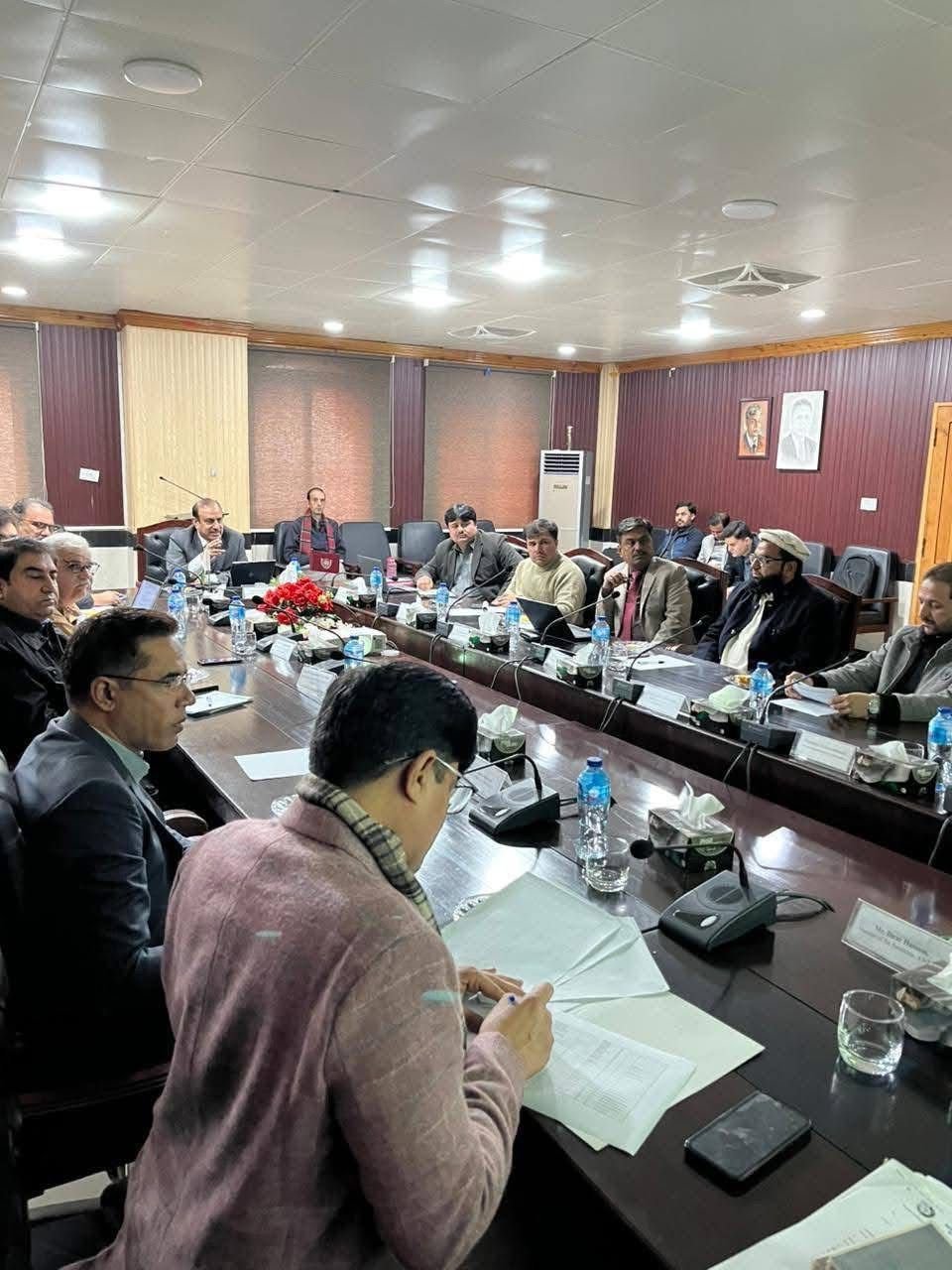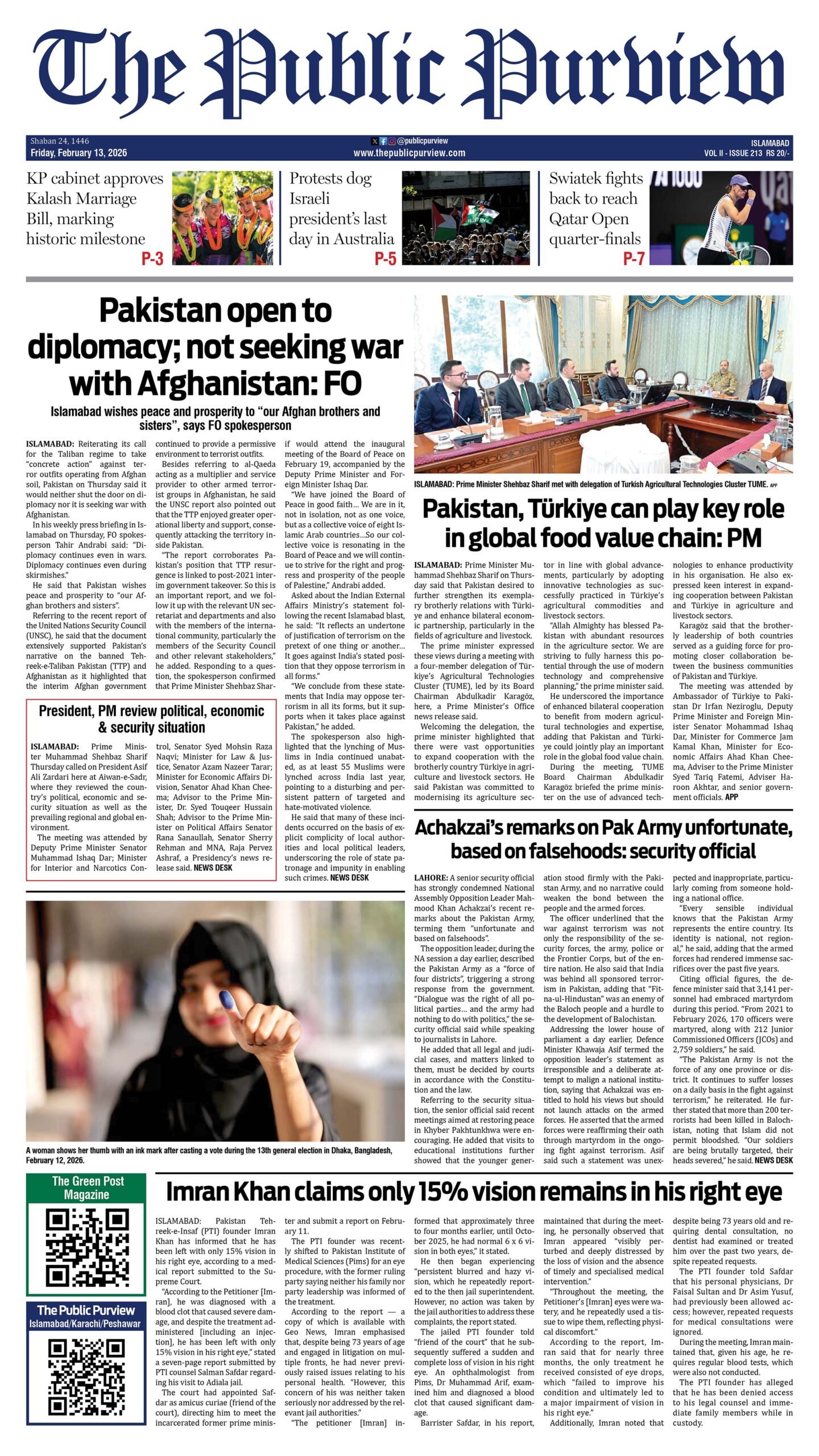Maria Mansab
Pakistan has consistently emerged as a global leader across numerous sectors, showcasing its immense potential and resilience. The country’s exceptional achievements span agriculture, minerals, industry, technology, tourism, and defense, among other areas. These milestones underscore Pakistan’s growing importance on the world stage and its ability to compete internationally. A Safe Pakistan, Strong Pakistan remains the cornerstone of this progress, ensuring stability and strength as the nation continues to excel globally.
Pakistan is ranked 8th globally in terms of agricultural output, establishing itself as a powerhouse that plays a crucial role in feeding both its population and the world. The country is the 3rd-largest milk producer, with an annual output of 65.785 million tons, and is renowned for its Basmati rice, ranking as the fourth-largest rice exporter and ninth in rice production. Additionally, Pakistan is a leader in producing key crops, being the 4th-largest producer of sugarcane, guava, and mango.
Furthermore, Pakistan’s cotton industry shines as the fifth-largest producer and fourthlargest exporter of cotton yarn globally. It ranks sixth in the production of onions, dates, and tobacco, while also being the eighth-largest producer of wheat and seventh in chickpeas. The citrus fruit Kinow also earns Pakistan a prominent position as the sixth-largest producer worldwide. These achievements collectively place Pakistan at the eighth spot globally in terms of agricultural output.
The country’s mineral wealth is equally remarkable. Pakistan is home to the world’s second-largest salt mine, the Khewra Salt Mine, which stands as a testament to its rich natural resources. Additionally, the Reko Diq mine holds one of the world’s largest gold and copper reserves, with an estimated economic potential expected to generate around $74 billion in free cash flow over the next 37 years. According to the U.S. Energy Information Administration, Pakistan ranks among the top ten countries with untapped mineral resources, highlighting its latent wealth.
Industrially, Pakistan excels in sectors like leather and sports goods. With leather exports reaching USD 950 million annually, the country ranks as the fourth-largest exporter of leather apparel. The city of Sialkot, often called the “sports goods capital,” manufactures nearly 70% of the world’s soccer balls, earning international acclaim.
In the realm of technology and the digital economy, Pakistan has made significant strides. It has been recognized as the fourth-fastest growing freelance market globally by the Oxford Internet Institute’s Online Labour Index. Moreover, Kearney’s Global Services Location Index (2021) ranked Pakistan as the second most financially attractive destination for IT and IT-enabled services outsourcing. The International Labour Organization (ILO) also ranked Pakistan as the second-largest supplier of digital labor services, showcasing the nation’s adaptability in the digital age.
Pakistan’s demographics serve as a foundation for its growth, with the country boasting the fifth-largest youth population globally—64% of its citizens are under the age of 30. This young, dynamic population is complemented by Pakistan’s status as the third largest English-speaking country, a key factor in its global outreach and competitiveness.
Tourism in Pakistan is rapidly gaining global recognition. CNN Travel recently featured Gilgit-Baltistan among its “Top 25 Destinations to Visit in 2025,” while the United Nations World Tourism Organization named Pakistan the top-performing tourist destination in 2023. Additionally, a WorldData.info survey ranked Pakistan as the seventh most desirable destination in South Asia. The Financial Times included Pakistan in its prestigious list of “50 Destinations to Take in 2025.” The country’s natural beauty is epitomized by K2, the world’s second-highest peak, standing at 8,611 meters above sea level.
Economically, Pakistan has emerged as a major player in Islamic finance, ranking fifth globally in the Islamic Finance Country Index 2021. The World’s Happiest Workplaces list for 2025 featured prominent Pakistani companies like Nestlé, Unilever, and Pakistan International Airlines (PIA). Furthermore, Pakistani banks have excelled in the 2024 Asia-Pacific rankings, with four securing spots among the top 10 best performing stocks, outperforming regional competitors. The Pakistan Stock Exchange (PSX) also garnered global recognition, being named the world’s best performing stock market in 2024 by Bloomberg, further showcasing Pakistan’s rising financial prowess.
On the global stage, Pakistan’s military capabilities and strategic significance are noteworthy. According to Global Firepower’s 2024 rankings, Pakistan holds the ninth position globally. The Military Strength Rankings 2023 ranked Pakistan’s army as the seventh most powerful worldwide. As the seventh nuclear power and the only Muslim majority country with nuclear capabilities, Pakistan’s defense profile is robust. Additionally, the Pakistan Army, with its size and strength, is the sixth-largest in the world and the largest among Muslim nations.
These achievements collectively reflect Pakistan’s resilience, talent, and potential. From its fertile lands and vast natural resources to its industrious workforce and strategic global presence, the country stands as a beacon of promise. With continued focus on leveraging its strengths and addressing its challenges, Pakistan is poised to achieve even greater heights in the years to come.
The Author is an MPhil scholar from Quaid-e-Azam University and a freelance writer.






 Today's E-Paper
Today's E-Paper